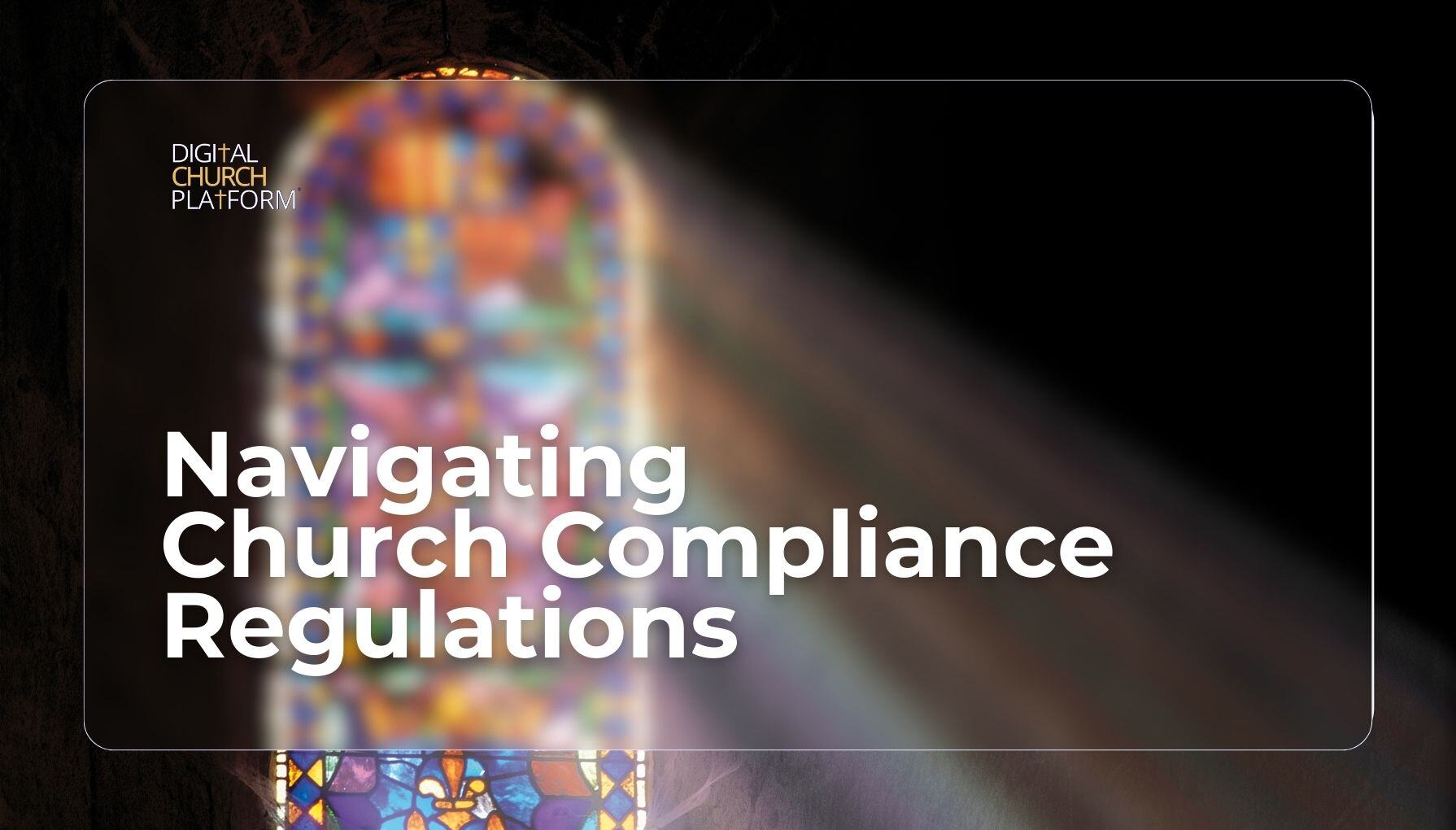
Church compliance involves adhering to specific requirements, standards, or regulations. It is important for churches to understand these regulations in order to ensure legal adherence and smooth operations. By following orders, rules, and requests, churches can create a safe and compliant environment for their community.
One important aspect of church compliance is adhering to laws, regulations, and guidelines set by the Board of Trustees. These regulations cover various areas such as general governance, Charity Commission regulations, operations, data protection, property, and employment. Understanding these regulations and their implications is crucial for churches to navigate compliance requirements effectively.
By familiarising themselves with church compliance regulations, clergy and compliance officers can develop strategies and processes to ensure role compliance within the church community. This includes creating policies and procedures that align with the regulations and educating staff and volunteers about their responsibilities in maintaining compliance.
Key Areas of Compliance for Churches
Churches need to pay attention to several key areas of compliance to ensure they meet the requirements and standards. These areas include:
- Board of Trustees regulations: Churches must follow the regulations set by their Board of Trustees, which include governance practices, financial management, and decision-making processes.
- Charity Commission regulations: If a church is registered as a charity, it must comply with the regulations set by the Charity Commission. This includes financial reporting, transparency, and accountability.
- Data protection: Churches handle sensitive personal information, and it is important to comply with data protection regulations to ensure the privacy and security of this data.
- Property regulations: Churches often own property and must comply with regulations related to property maintenance, safety, and accessibility.
- Employment regulations: Churches have employees and volunteers, and it is important to comply with employment regulations, including fair hiring practices, appropriate contracts, and health and safety policies.
By focusing on these key areas of compliance, churches can ensure they are meeting the requirements and standards set by the relevant authorities.
Importance of Compliance in Church Operations
Compliance plays a crucial role in the smooth operations of a church. By adhering to regulations and standards, churches can:
- Maintain a positive reputation: Compliance helps churches build trust and credibility within their community. It shows that the church is committed to following the law and operating ethically.
- Avoid legal issues: Non-compliance can lead to legal consequences, including fines, penalties, and legal action. By maintaining compliance, churches can avoid these issues and operate within the bounds of the law.
- Protect the church community: Compliance regulations often involve ensuring the safety and well-being of the church community. By following these regulations, churches can create a safe and secure environment for their members, employees, and volunteers.
- Enhance efficiency: Compliance processes and procedures can help churches streamline their operations and improve efficiency. By implementing effective compliance strategies, churches can reduce risks, prevent errors, and ensure smooth day-to-day operations.
Overall, compliance is essential for the effective and responsible functioning of a church. It provides a framework for good governance, ethical practices, and legal adherence.
Implementing Effective Compliance Strategies
Implementing effective compliance strategies is crucial for churches to ensure role compliance and maintain legal adherence. Here are some key steps churches can take to implement effective compliance strategies:
- Conduct a compliance audit: Start by assessing the current state of compliance within the church. Identify areas of strength and areas that need improvement. This will help determine the focus areas for developing compliance strategies.
- Develop policies and procedures: Create clear and concise policies and procedures that align with the regulations and standards relevant to the church. These should be communicated to all staff and volunteers and regularly reviewed and updated.
- Provide training and education: Ensure that all individuals involved in the church community are aware of their compliance responsibilities. Provide training and education sessions to help them understand the regulations, policies, and procedures in place.
- Establish monitoring and reporting mechanisms: Implement systems to monitor compliance and track potential issues or violations. Establish reporting mechanisms for individuals to raise concerns or report non-compliance.
- Regularly review and update: Compliance is an ongoing process. Regularly review and update the compliance strategies to ensure they remain effective and aligned with any changes in regulations or standards.
By implementing these strategies, churches can create a culture of compliance and ensure that everyone understands and follows the necessary regulations and standards.
Benefits of Maintaining Compliance in Church Settings
Maintaining compliance in church settings offers several benefits for the church and its community. Some of the benefits include:
- Legal protection: Compliance helps churches avoid legal issues and protects them from fines, penalties, and legal action. By following the regulations, churches can operate within the bounds of the law.
- Trust and credibility: Compliance demonstrates that a church is committed to ethical practices and following the law. This builds trust and credibility within the community and can attract more members and supporters.
- Safe and secure environment: Compliance regulations often focus on ensuring the safety and well-being of the church community. By adhering to these regulations, churches can create a safe and secure environment for their members, employees, and volunteers.
- Efficient operations: Compliance processes and procedures help streamline operations and improve efficiency. By reducing risks and errors, churches can operate more smoothly and effectively.
- Positive reputation: Maintaining compliance contributes to a positive reputation for the church. It shows that the church is responsible, trustworthy, and committed to the well-being of its community.
By maintaining compliance, churches can reap these benefits and ensure they are operating responsibly and ethically, supported by efficient church software solutions.



